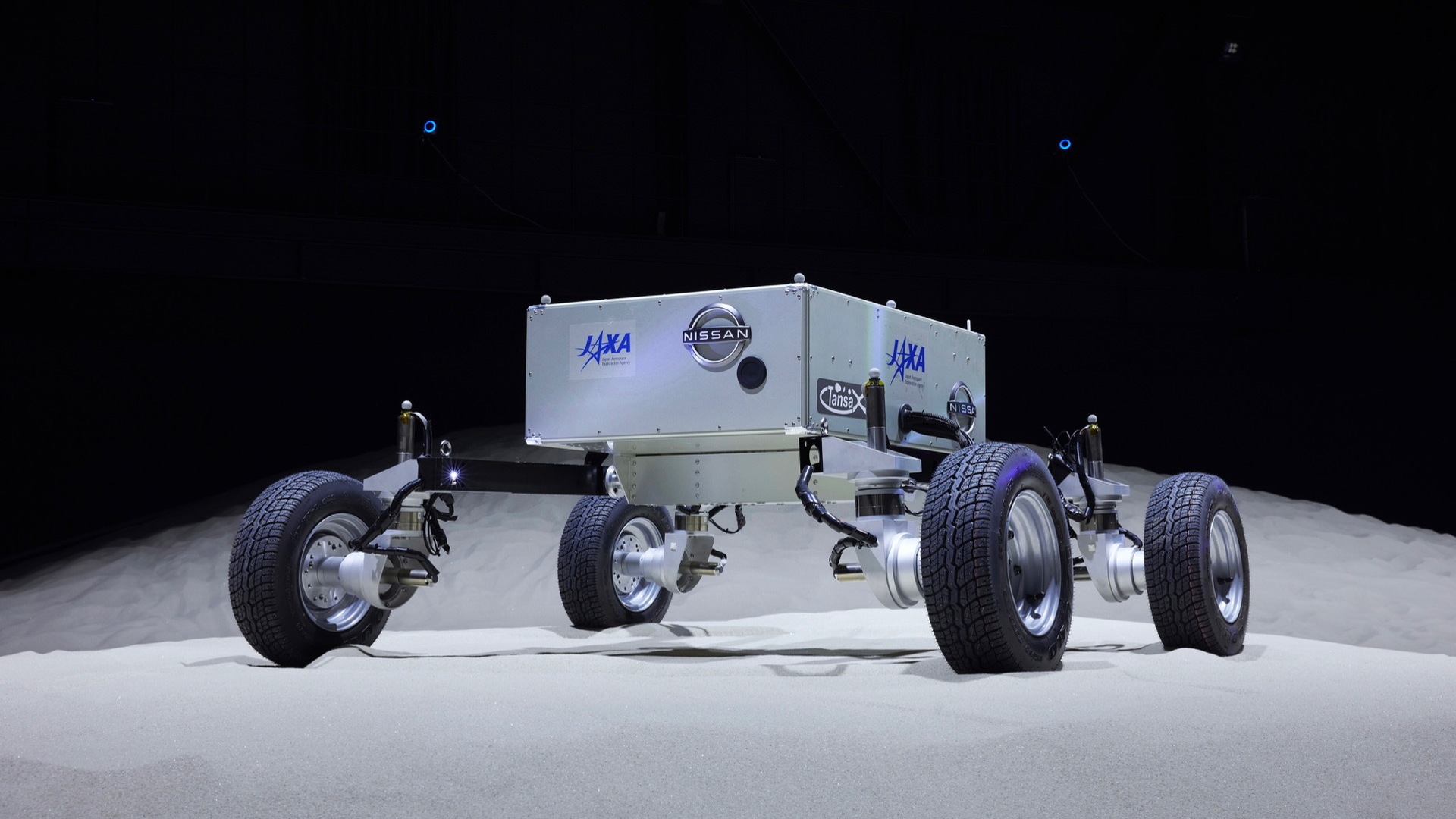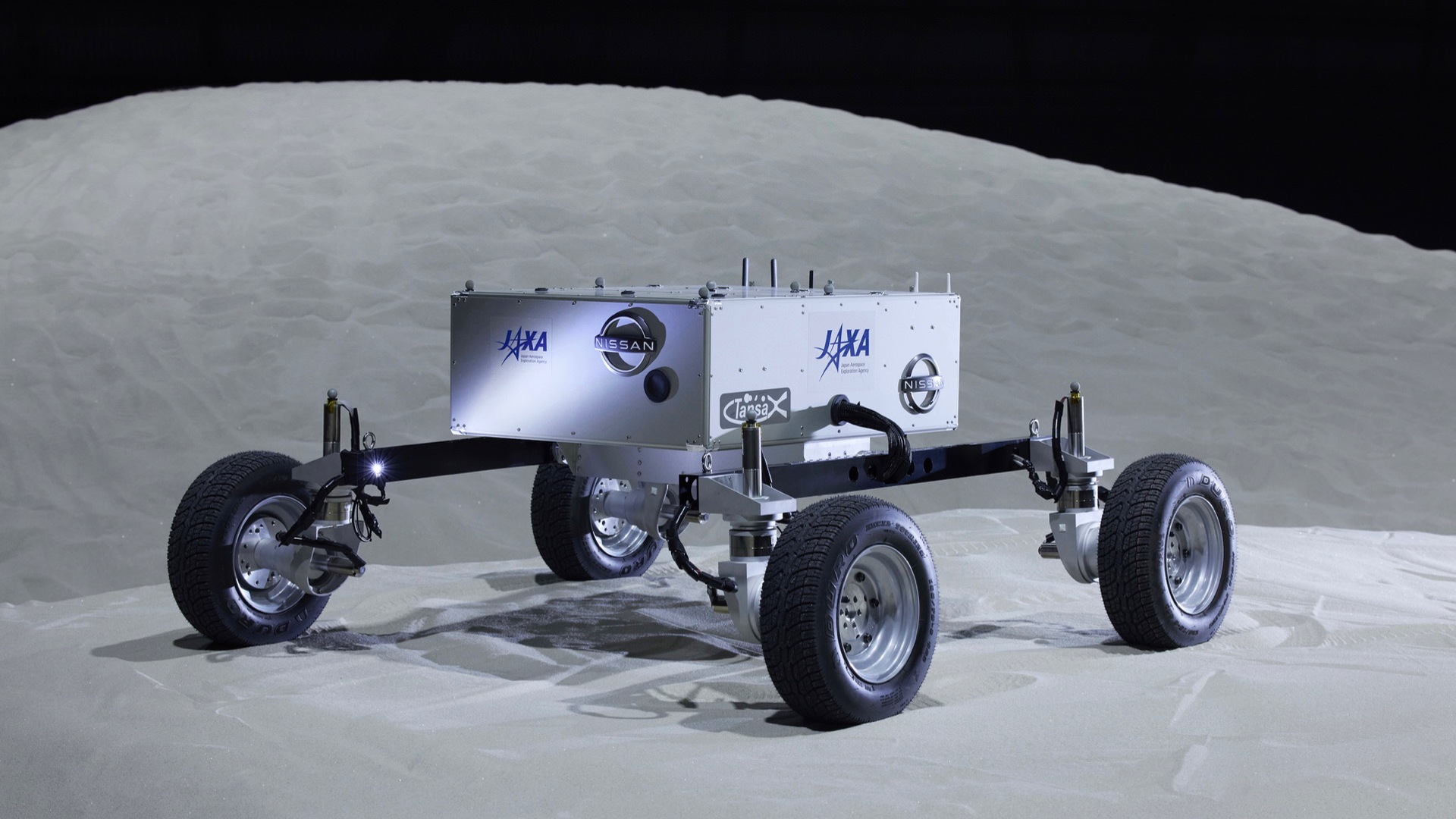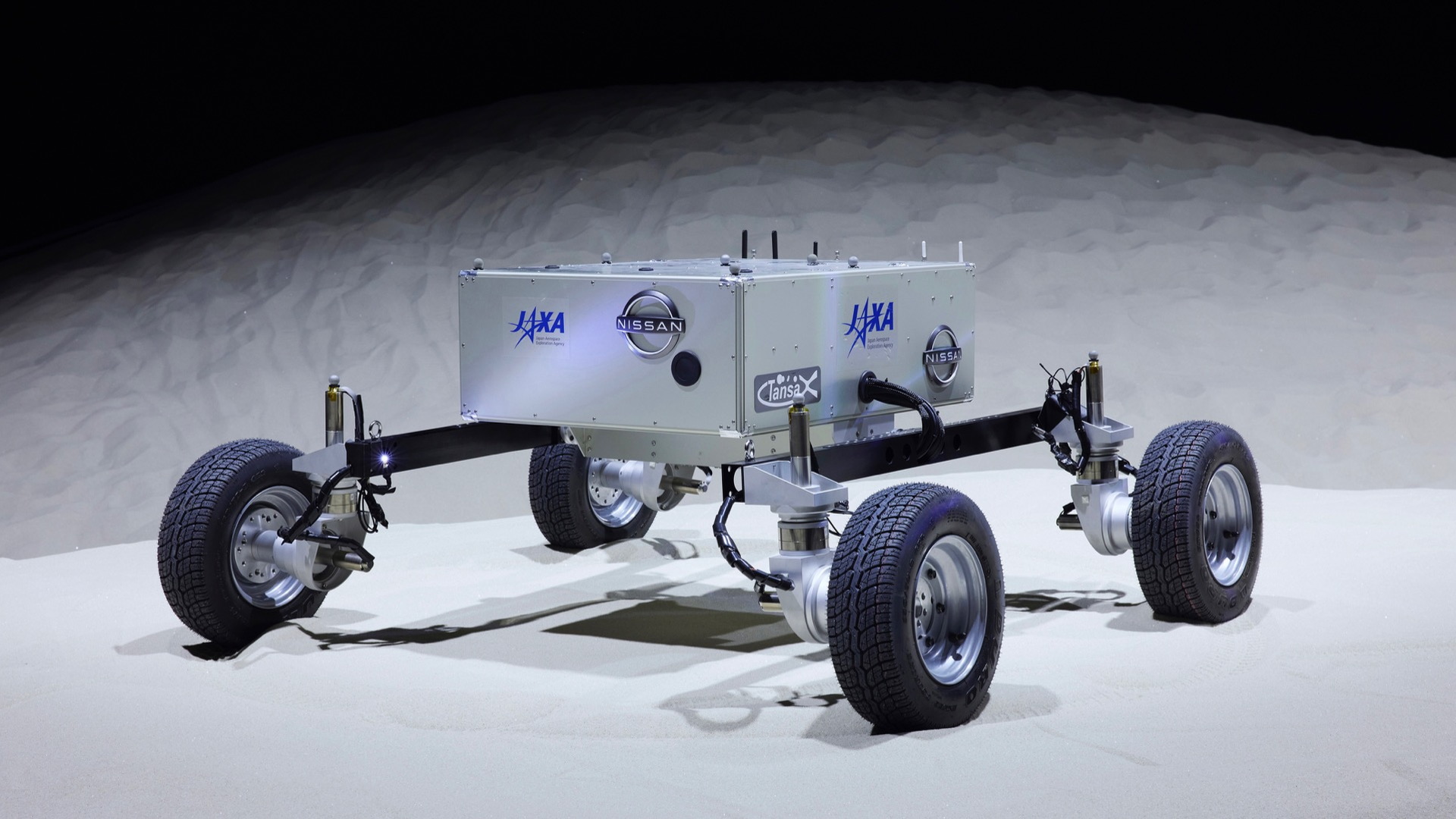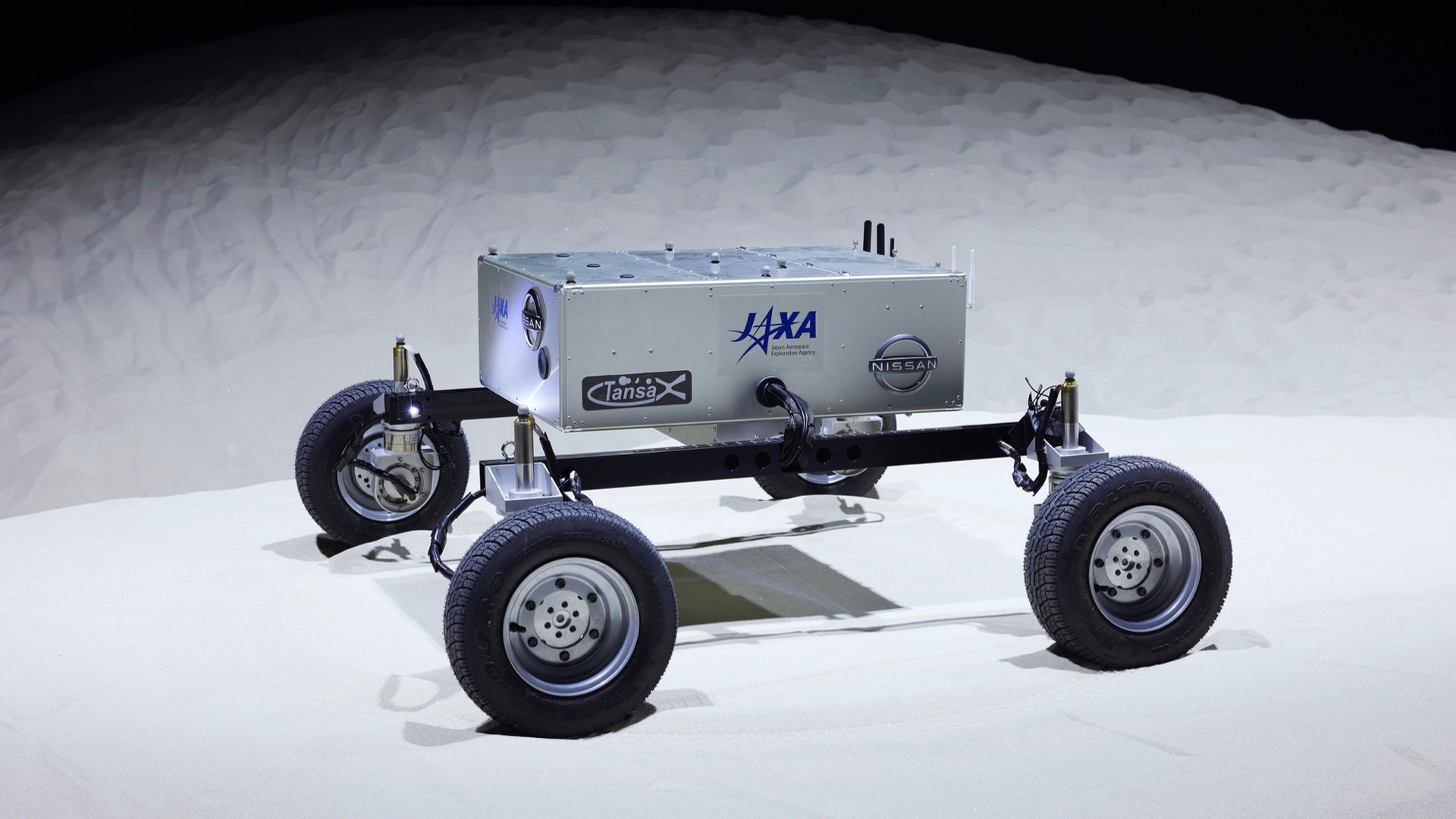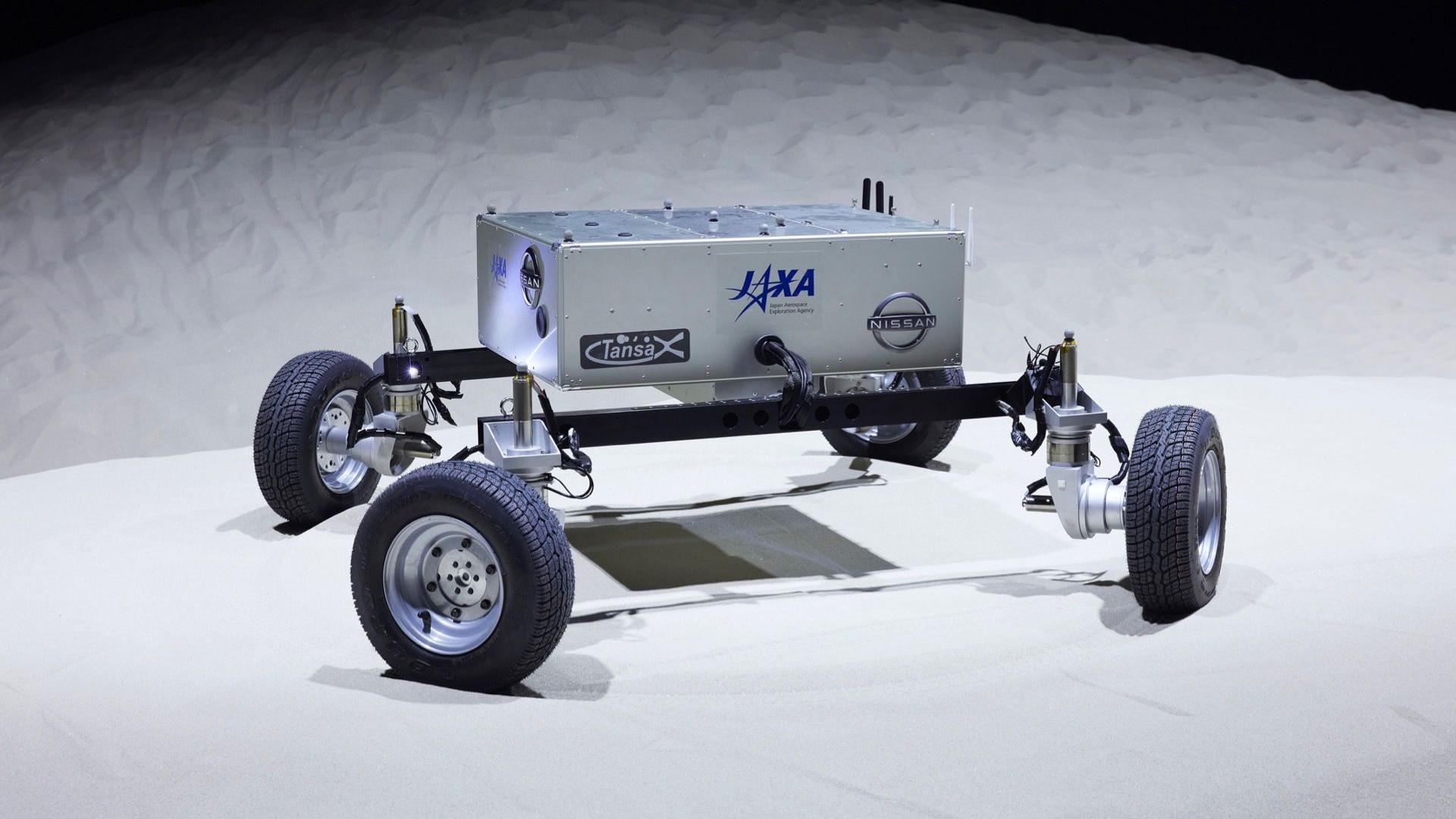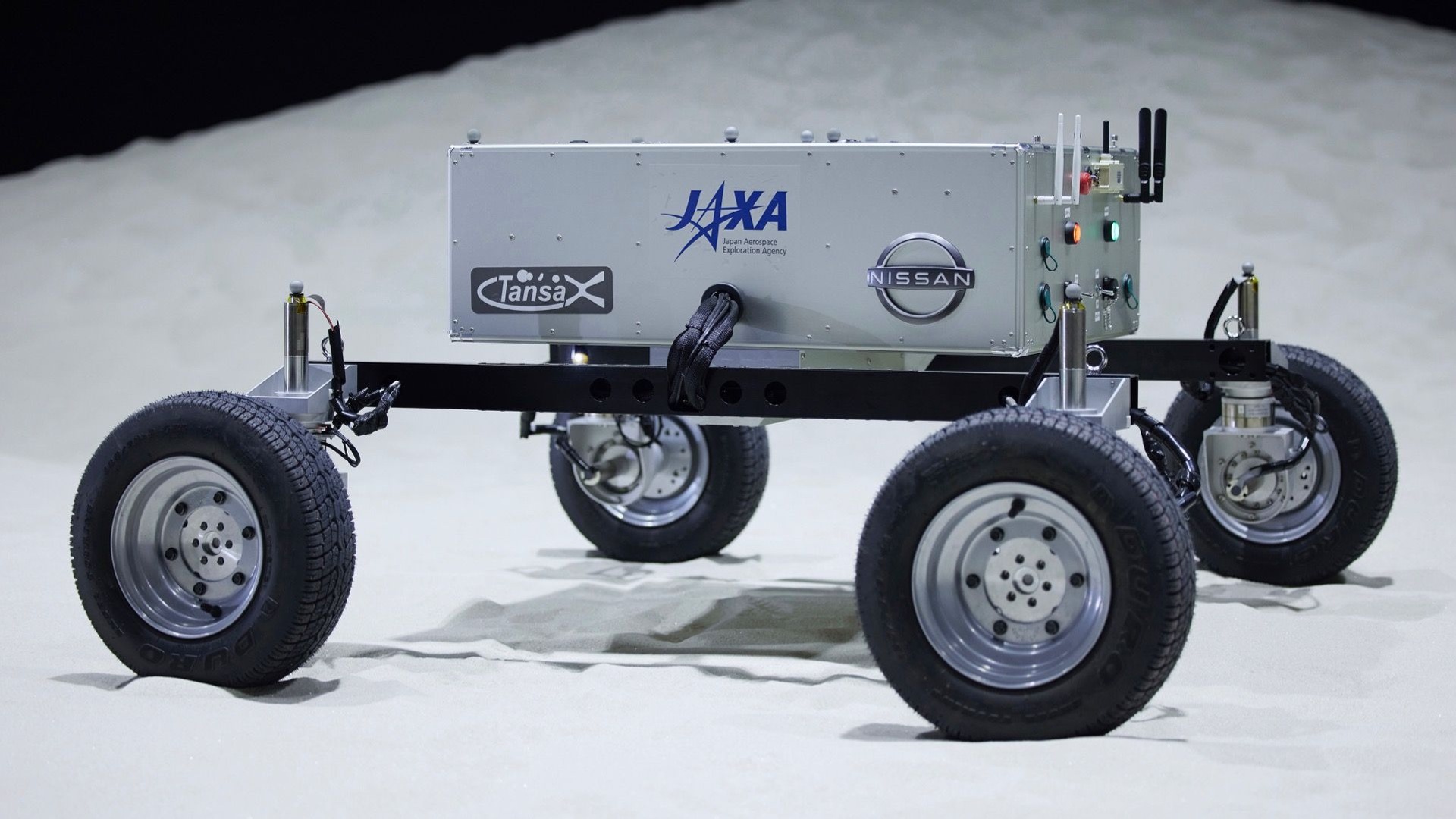Nissan this week unveiled a lunar rover prototype in partnership with the Japan Aerospace Exploration Agency (JAXA). The automaker and JAXA have been working together on this project since January 2020, Nissan said in a press release.
Nissan said it's applying motor-control knowhow from the Leaf and the e-4orce (pronounced e-Force) electric all-wheel drive system set to debut in the 2023 Ariya crossover to the lunar rover project.
The rover's motors have been tuned to perform on the lunar surface, but Nissan also believes the research project could lead to new knowledge that can be applied to terrestrial vehicles, Toshiyuki Nakajima, head of the engineering department responsible for e-Force, said in a statement.
Several other automakers have researched lunar rovers. JAXA has also worked with Toyota to develop a larger crewed lunar rover design powered by hydrogen fuel cells, while Honda announced earlier this year that it will also be working with the space agency on lunar rover projects.
Audi unveiled its own lunar rover for a privately operated Moon mission in 2015. But the precedent was set by General Motors, which helped develop the original lunar rover used on the NASA Apollo missions in the 1960s and '70s.
The Nissan lunar rover concept was unveiled at the automaker's Nissan Futures event alongside a series of EV concepts. Nissan also just unveiled a single-seat race car concept that uses an Ariya powertrain. The Ariya itself is scheduled to begin deliveries in the U.S. in fall 2022. It will be the first of 15 EVs Nissan plans to add to its global lineup by 2030.
